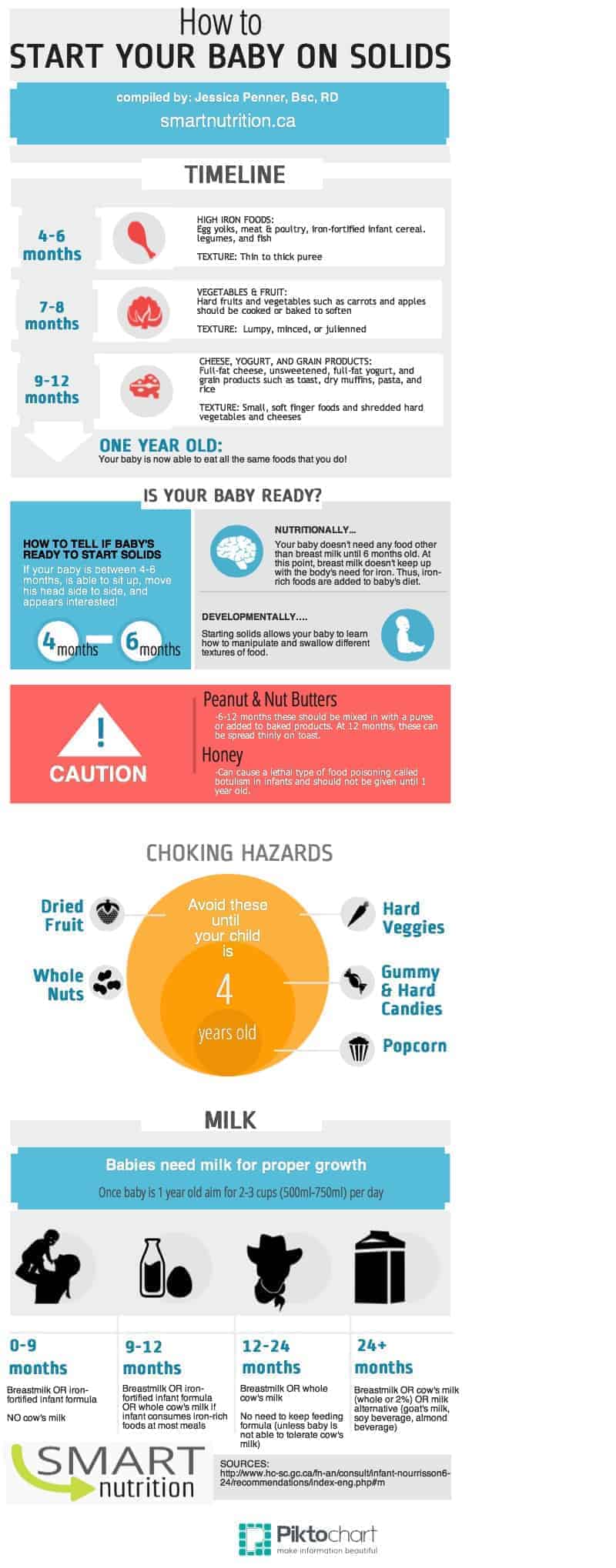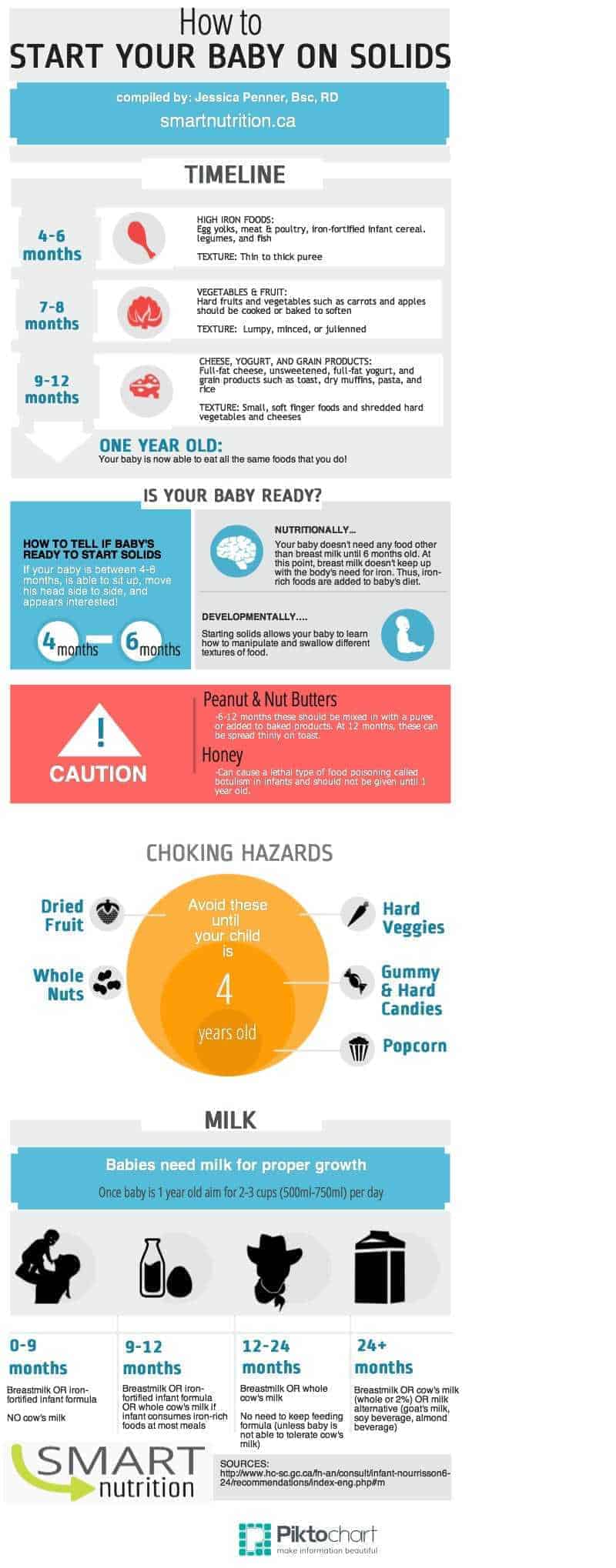
For the visual learners out there, I created an infographic that summarizes how to start your baby on solids. I think seeing the info laid out on one page makes it easier to understand the big picture.
I would love your feedback. Do visuals such as photos, graphics, charts, etc, help you to remember information better?
[share title=”Share This Article” facebook=”true” twitter=”true” google_plus=”true” linkedin=”true” pinterest=”true” reddit=”true” email=”true”]



Every time I look at the infant cereal in the store I end up not buying it because it seems so processed and I don’t know what all thoses wierd words are listed under ingredients. Is this silly of me?
Not silly at all! It’s good to take an active role in knowing what food you are giving to your children. In general, I’m definitely a fan of eating as minimally processed at possible. However, there are always exceptions to every “rule”. In this case, there are options for people who choose not to buy iron-fortified infant cereal: foods that are naturally high in iron such as egg yolks, meat, and legumes. The nice thing about infant cereal is that babies often like it right away so you know they are getting the iron they need. Here are my tips for infant cereal:
a) Buy the type that says “add breastmilk or formula”. The “add water” type already has formula in it, which explains the long list of ingredients!
b) Add other food into the cereal: cooked egg yolks, peanut or nut butter, fruit puree. That way they aren’t just eating a bowl full of simple, process carbs!
I think this could be a topic for a whole blog post!
Thanks. I know I already asked you a question about infant cereal before! And your response was really helpful. I guess I need to hear these things I few times before it sinks in! I’m sure lots of people would like a blog post about it!
Do you know why Goats milk is not recommended until after 24 months? My understanding is it is easier to digest than cows milk.
Great question. The main reason goat’s milk isn’t recommended until age 2 is that it’s naturally low in folate. There have been instances of children who were fed goat’s milk becoming deficient in folate. A child of that age still gets a lot of calories from milk (about 50%) so those small nutrient differences can make a big difference! Also, most children after the age of one have a matured digestive system that’s able to digest cow’s milk. However, I do hear that there is a folic acid fortified whole goats milk on the market so that could be an option. I haven’t had a look in the grocery stores to know if it’s readily available or not.
We just had our 4 month appointment and when I mentioned I was planning to start solids closer to 6 months, the pediatrician was pretty adement that we start now. What are the pros and cons to starting this early?
Thanks you for your question! There’s actually a lot to be said on the topic, which is why I have two whole posts dedicated to it coming up this week! Please stay tuned 🙂
Great post! Perfect for me as Jet is 5 months and just started cereal a couple of days ago!
Good timing! I hope you have lots of fun watching him experience food!
Great info!!! Just saved the image to my phone. Khaleesi (Nita’s niece) will be ready soon!
I’m so glad that you find it helpful!
p.s. That’s a beautiful name your daughter has!
Looks awesome! I’ll be sure to share this with my “new” mummy friends! My niece is coming up to 6 months soon too, so this is a great refresher!
Thanks Nita. I hope it helps your friends out!